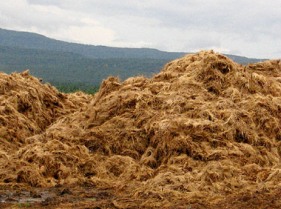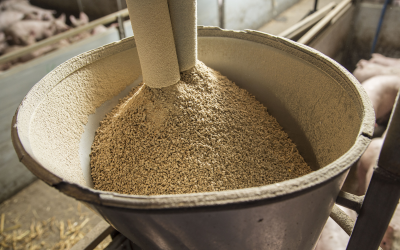Fish could feast on fermented palm oil waste

The synergy of palm oil refinery waste and fly maggots could produce a low cost feed for farmed fish. It also reduces a pungent source of pollution — a potential boon in countries like Indonesia, one of the world’s largest palm oil producers.
"This process will allow us to recycle palm oil refinery waste and turn it into cheap food for fish farms and to produce ‘green’ fertiliser," Saurin Hem, a researcher at the Institute for Research and Development (IRD) in the southern French port of Marseille, told AFP.
After an IRD team stumbled onto the discovery they perfected the technique with partners from Indonesia, which produces almost 2.3 million tonnes of palm oil a year.
Jakarta is set to start using the method this year at a refinery on the western island of Sumatra, IRD said.
Pollution
Palm oil production generates millions of tonnes of biomass called palm kernel meal that can foul nearby waters and produces methane, a potent greenhouse gas.
Some palm kernel meal is exported to Europe, the United States and Australia as cattle feed, but the majority is largely left to rot, emitting the foul-smelling, polluting gas in hot tropical settings.
The French scientists at IRD had been tasked with finding a way of making palm kernel — rich in fats and proteins — suitable to feed to fish.
First experiments with the meal failed. The fish (tilapia) did not touch it at all.
Researchers dumped the fermented mixture well outside the IRD’s laboratory owing to its strong smell.
Enzyme from fly larvae
Two weeks later they noticed something strange: chickens and other birds were pecking furiously at the rotting refuse, feasting on maggots.
A species called black solider flies had been attracted by the smell and laid eggs.
That was the scientists’ eureka moment: enzymes secreted by the fly larvae, it turned out, had changed the chemistry of the fermenting mixture.
Wondering if the fish would find it more digestible, they tried again. This time, the tilapia grew 3.5 times faster than with previous feeds, and gained three times as much weight per day.
IRD researcher Hem shared the concerns from nature activists about protecting the environment by not increasing the area of oil palm plantings.
"To be able to recycle the waste, we must not destroy the insect’s natural habitat, that is to say the forest," he said.




![[Photo: EPA / MA Pushpa Kumara]](https://www.allaboutfeed.net/app/uploads/2020/12/001_354_rb-image-2800109-400x250.jpeg)






